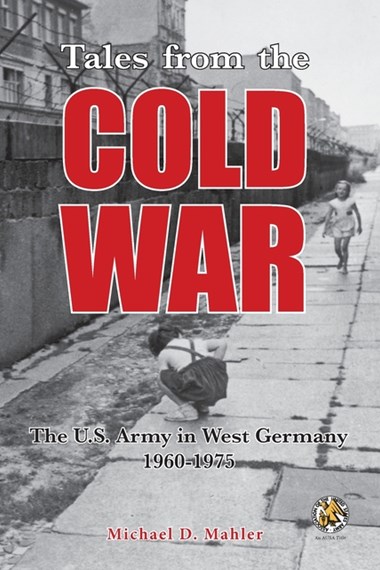In Tales From the Cold War: The US Army in West Germany 1960-1975 MD Mahler recounts his personal experiences living and serving in West Germany during that period as part of US Army Europe.
The book progresses chronologically from Mahler’s time as an officer cadet through to his retirement in the early 1980’s and focuses primarily on his experiences living and serving in West Germany. His experiences elsewhere in his career, most notably combat deployments to Vietnam, provide contrast against which to evaluate his experiences of serving West Germany during the height of the Cold War.
Tales From The Cold War is essentially a collection of personal memoirs but that is its strength and its primary value. Within its pages you will find little mention of the deliberations of either the US or Soviet Governments and their evolving views, strategies and policies that shaped the Cold War. Much has been written elsewhere on those topics. You won’t find long passages on the intrigues and tension of the Cuban Missile Crisis or Abel Archer. Instead what you will find is a very personal and very human account of what it was like to serve at varying ranks in some of the closest US units to the East German border during some of the most tense moments of the Cold War.
Mahler served in West Germany as a troop, company and battalion commander. He also served as a staff officer in a divisional headquarters. He first posted to West Germany while Eisenhower was president and for the last time during the Reagan administration.
The period over which he served in Germany was a period of significant political and social upheaval domestically in the US and Mahler does a good job articulating how these upheavals were felt at the grass roots in the units posted on the East German border. Some of the issues he recounts needing to address as a commander include race tensions, retention problems and wide spread substance abuse (including both drugs and alcohol).
Also discussed in detail were the nuances and subtleties of the interactions between the West German population and the US forces which occurred in the aftermath of WWII, which was still recent enough to be something that most Germans had first hand experience of. For comparison, during Mahler’s first tour WWII had ended only 15 years prior. For comparison, 9/11 and the invasion of Iraq took place 21 and 19 years ago respectively.
It wasn’t just the interactions between the US forces and their West German neighbours that Mahler gives good detail of but also the interactions between the Bundeswehr and the US Army noting the ongoing presence of WWII veterans in both armies and the ongoing use of legacy Wermacht equipment and uniforms by the Bundeswehr in its early years.
This in turn leads to observations of eccentric behaviours by those veterans when exposed to certain stimuli, which we would recognise today as PTSD.
Beyond these first order issues Mahler also gives good insight into what barracks life was like in those days and what life was like for the families who accompanied service personnel on those postings.
I particularly enjoyed the sections dedicated to detailing the lived experience of the wives who had accompanied the serving personnel. He even includes an appendix written by his wife giving which briefly gives her perspective.
Lastly, through his discussion of barracks life over such an extended period Mahler provides perspective on many contemporary issues. Chief among these are those that concern equipment, workforce and shifting Army policies to reflect shifting societal norms. This perspective is useful as it shows that many issues that are currently being confronted have been experienced before and that while history doesn’t repeat, it rhymes.
Tales from the Cold War isn’t the sort of book from which you will draw profound life changing leadership lessons, nor is it any threat to the established classics of military literature such as Clausewitz or Thycudides. It is however, a disarmingly personal account of the human experience of living and serving on the front line of the Cold War during some of its most tense periods.
As tensions continue to mount around the world it is in reflecting on this human experience that the book lands its greatest value and for that reason, it is a book worth reading.
About the Author: Chris is an Associate Editor at Grounded Curiosity and a currently serving Australian Army officer. Building on a multi-discipline engineering background, his passion is technological development and PME. Chris’ work has previously appeared on Grounded Curiosity, Strategy Bridge and The Cove. Find him on Twitter.

